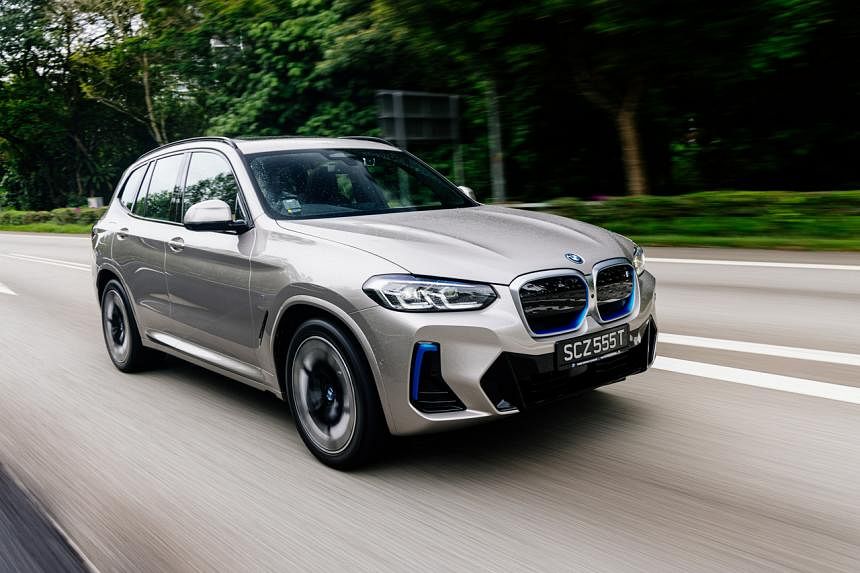I read that electric vehicles (EVs) experience more tyre wear than combustion-engined cars because of their high torque and relatively high kerb weight. And some studies claim that because of this, EVs produce quite a lot of particulate matter.
EVs are typically heavier than their equivalent petrol or diesel-fuelled versions mainly because of their massive battery pack.
For example, an electric BMW iX3 weighs nearly 500kg more than the petrol-driven X3. There is also a significant difference in torque output - 400Nm for the iX3 versus 250Nm for the X3. Furthermore, the iX3's 400Nm is produced almost instantly, whereas the X3's peak torque arrives from 2,500rpm.
These factors can contribute to higher tyre wear. Hence, there are some studies suggesting that EVs produce more particulate matter from their tyres than their combustion-engined equivalents.
But many of these studies seem flawed as they do not take into account two crucial factors.
One, you can choose tyres more suited to EVs. In fact, some carmakers are working with tyre manufacturers to design tyres which bring out the best traits of their EVs.
Two, traction-control systems work more efficiently in EVs, which is why you rarely get any wheelspin - which contribute to premature wear - while flooring the throttle in an EV.
Major tyre brand Continental advises EV owners to choose tyres with the right load index, which are quieter and have a lower rolling resistance.
Even so, the German tyre company cited a study done by Tesla, which found that for a two-wheel-drive EV, its tyres are likely to wear out 25 per cent faster than those on an equivalent combustion-engined model. But an all-wheel-drive EV has 10 per cent less tyre wear than a comparable combustion-engined model.
How fast tyres wear out also depends a lot on driving behaviour. An aggressive driving style will lead to higher wear, as will improper inflation, faulty wheel alignment and tyres which are not rotated regularly.
If you keep an eye on these things, you should not worry too much about premature wear or higher particulate-matter emissions.
And as with combustion-engined cars, a lighter, more efficient EV will often be more environmentally sound than a heavy, performance-oriented model.

